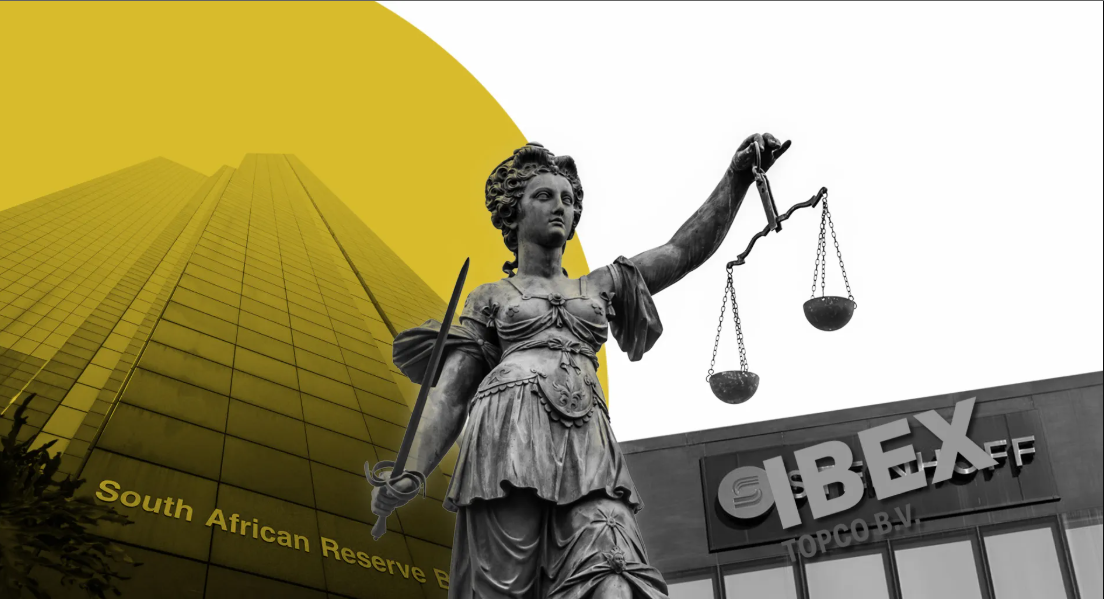Business
South African Reserve Bank vs. Steinhoff: Has the Watchdog Gone Rogue?

A significant legal dispute has emerged between the South African Reserve Bank (SARB) and Ibex (formerly Steinhoff), centered on the SARB’s actions regarding Ibex’s foreign debt repayment and asset disposition. This analysis details the unfolding multibillion-rand “lawfare” primarily conducted within the Pretoria High Court, much of which remains obscured due to the complexity of the litigation and the SARB’s insistence on extensive redactions of court evidence.
The core of the contention lies in the SARB’s seemingly abrupt imposition of a “blanket transfer ban” preventing Ibex from repaying its international creditors, a move Ibex characterizes as an overreach of power. This action has been met with judicial pushback, notably a recent rebuke from Judge Sulet Potterill regarding the SARB’s conduct in the “0433 case.” The court noted the SARB’s stated intention to repeatedly litigate the matter even in the absence of initial factual support.
Concerns are mounting regarding the potential ramifications of the SARB’s approach, which could undermine international lenders’ confidence in South African entities. The dispute is intertwined with the extensive fraud perpetrated by Steinhoff’s previous management, including misrepresentations made to the SARB concerning the company’s offshore listing.
Despite the historical context of fraud, Ibex’s new management has reportedly engaged in consistent consultation with the SARB regarding a comprehensive restructuring and settlement process aimed at mitigating the consequences of the prior malfeasance. This included obtaining prior approvals for debt rescheduling and associated foreign exchange liabilities. However, a shift in the SARB’s stance occurred in 2023, coinciding with the findings of an investigation into past exchange control contraventions.
The SARB’s subsequent actions included the imposition of blocking orders on Ibex’s funds and a blanket transfer ban, effectively hindering the implementation of previously approved restructuring plans. Ibex has challenged these measures in court, citing the SARB’s alleged bad faith and the revocation of prior authorizations. The SARB’s insistence on confidentiality, leveraging apartheid-era legislation, has further complicated public scrutiny of the matter.
A key point of contention involves application 0433, through which Ibex sought and initially obtained SARB approval to expatriate funds from the sale of South African assets (primarily Pepkor shares) to settle foreign debt. Despite this approval, the SARB subsequently intervened to block these transactions, leading to further urgent litigation. Judge Potterill’s ruling on the 0433 case was critical of the SARB’s lack of candor and the unlawfulness of its blocking order.
The SARB’s counter-application to review and set aside its own 0433 approvals, citing a lack of authority of the approving official, was met with skepticism by the court due to a lack of supporting evidence. The judge expressed concern over the SARB’s failure to provide factual basis for its decisions.
The latest development involves the SARB’s issuance of a prohibition order on Ibex’s remaining Pepkor shares, a move that preempts relief sought by Ibex in ongoing proceedings and has been interpreted as potential contempt of court. The underlying reasons for the SARB’s seemingly intransigent stance may be linked to the findings of its investigation into past exchange control violations and a potentially expansive interpretation of its mandate to protect the domestic economy, even in the context of rectifying prior fraudulent activities. The case highlights critical questions regarding regulatory overreach, transparency, and the potential impact on South Africa’s attractiveness to international capital.
{Source: Daily Maverick}
Follow Joburg ETC on Facebook, Twitter , TikTok and Instagram
For more News in Johannesburg, visit joburgetc.com



























